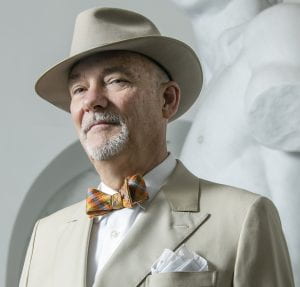 On July 6, 2020, the U.S. Supreme Court completed the takeover of the First Amendment by business interests. It did it in a stunningly disingenuous way.
On July 6, 2020, the U.S. Supreme Court completed the takeover of the First Amendment by business interests. It did it in a stunningly disingenuous way.
The case was about robocalls. From 1991 until 2015, Congress banned robocalls to cell phones. In 2015, Congress made an exception for debt collectors who are collecting for the federal government. The American Association of Political Consultants wanted to make robocalls as well, so they sued. They got a pyrrhic win; the Court struck down the government debt exception. Nobody can make robocalls again. Most of us, I am sure, are happy about that result.
In the process of reaching its decision, the Supreme Court, quite needlessly, upended First Amendment law on speech about buying and selling. In the 1940s, it ruled that “commercial” speech wasn’t covered by the First Amendment at all. Then, in 1975, the Court said Virginia could not ban ads for abortions. The next year, it said Virginia couldn’t ban ads with prices for prescription drugs.
There was still an important difference between political speech and commercial speech. Regulations based on the content of political speech are presumed to be unconstitutional. The government can have them only if it proves they are necessary for the most important goals and only if they limit speech as little as possible. The Court calls this “strict scrutiny.”
Content regulation of commercial speech was treated like speech regulations, which aren’t based on content. The government still has to have a good reason for it, the regulation has to actually work, and it can’t cover too much speech unnecessarily. The government hardly has a free hand; it does have more leeway. The Supreme Court calls this “intermediate scrutiny.”
Calls by debt collectors are commercial speech; the purpose of the call is to get the person called to send a check. The government “debt collection” exception is also clearly a content regulation; whether you get to make the robocall depends on what you plan to say. “Intermediate scrutiny,” right?
Purporting to rely on precedent, the Supreme Court ruled that the government debt exception was presumed unconstitutional and applied its far more demanding “strict scrutiny” analysis. The justification for the change? There isn’t one. Justice Kavanagh’s opinion says this is the well-established rule. It even relies on cases using the “intermediate scrutiny” standard for commercial speech, never mentioning the difference.
The Court’s four moderate liberals disagreed. Here’s where Justice Kavanagh’s chutzpah comes out. He calls out three of them, who are mostly arguing to treat commercial speech the way it has always been treated, for advocating a change in the law and not justifying the change. That of course is exactly what he did by pretending that his new rule is the old rule.
The outcome isn’t a huge surprise. It’s been clear for a few years now that the best way to win a free speech argument is to make it on behalf of big business. But this new rule about commercial speech has the potential to wreak havoc on much of consumer protection law. Any rule that turns on content (apart from fraud) will now most likely be unconstitutional. Any change with that kind of potential is probably bad First Amendment Law. Failing to justify it at all is bad lawyering.
Matt Coles is a Professor of Practice. He teaches 1L Civil Procedure, Constitutional Law, and Sexuality and the Law, among other courses. Before joining the UC Hastings faculty, he was Deputy National Legal Director at the ACLU, responsible for the organization’s work on race, voting, disability, and immigration. Before that, from 1995 until 2010, he was Director of the ACLU’s national LGBT Project. He recently shared his legal perspectives about shelter-in-place and curfew orders on the school’s Law and the Pandemic podcast.
